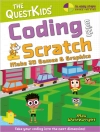This book surveys the state of the art in multidimensional, physically-correct visual texture modeling. Features: reviews the entire process of texture synthesis, including material appearance representation, measurement, analysis, compression, modeling, editing, visualization, and perceptual evaluation; explains the derivation of the most common representations of visual texture, discussing their properties, advantages, and limitations; describes a range of techniques for the measurement of visual texture, including BRDF, SVBRDF, BTF and BSSRDF; investigates the visualization of textural information, from texture mapping and mip-mapping to illumination- and view-dependent data interpolation; examines techniques for perceptual validation and analysis, covering both standard pixel-wise similarity measures and also methods of visual psychophysics; reviews the applications of visual textures, from visual scene analysis in medical applications, to high-quality visualizations in the automotive industry.
Inhaltsverzeichnis
Motivation.- Representation.- Texture Acquisition.- Static Multispectral Textures.- Dynamic Textures.- Spatially-Varying Bidirectional Reflectance Distribution Functions.- Bidirectional Texture Functions.- Visualization.- Perceptual Validation and Analysis.- Applications.- Conclusions and Open Problems.
Über den Autor
Dr. Michal Haindl is a Professor and Head of the Department of Pattern Recognition at the Institute of Information Theory and Automation within the Academy of Sciences of the Czech Republic. Dr. Jiří Filip is a Research Associate at the same institution.












